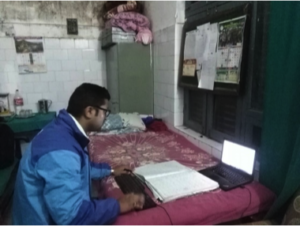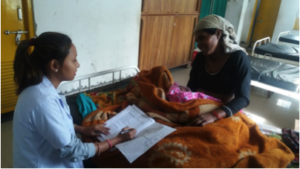Nepal Perinatal Quality Improvement Project (NePeriQIP)
Experience on Data Quality Assessment
In order to reach the Sustainable Development Goal (SDG) target of reducing neonatal mortality rate to 11 per 1000 live births by 2030, through Department of Health Services, Child Health Division in partnership with Golden Community, Nepal Perinatal Quality Improvement Project (NePeriQIP) has been implemented in 12 public hospitals of Nepal varying across regional, zonal and district levels since July 2017. A team of Data Collectors supervised by the Research Manager, have been established in hospitals to collect information on mortality and morbidity outcomes, health worker’s performance, beneficiaries’ perception and process documentation. Before the placement, the data collectors were given a week of intensive training in Patan Academy of Health Sciences (PAHS), Lalitpur where both theoretical and practical sessions were included in the training. A total of 40 data collectors received training including sessions on informed consent, data extraction, maternal recall survey and review of all the variables in the tools.

With data collection striding towards six months, it was crucial to monitor the extent of quality of data that was being collected for which a team of Data Quality Assurance Officers set out their journey in individual hospitals. Each hospital was assessed for a period of one week whereby, depending on the delivery volume, the Data Assessor filled 100% of the forms for small and mid-sized hospitals and 10% for big sized hospitals as per the Standard Operating Protocol (SOP) developed to ensure the accuracy of data being collected.
The Data Assessors completed assessing the data accuracy of all the hospitals from November 2017 to January 2018 where by the data assessment was performed for the following forms:
- Form 1 (Registry Data)
- Form 2 (Exit Interview)
- Form 4 (SNCU-NICU Registry Data)
- Form 6 (Clinical Observation)

The key findings after the visit were:
- Underreporting of cases (Neonatal morbidity, still births, neonatal deaths)
- Confusion in some of the tool variables
- Retrospective data collection not done/completed
- Daily visit to sick newborn care unit/newborn intensive care unit (SNCU/NICU) not done
Following this, an improvement plan was made and implemented in the respective hospitals. With the first phase of data quality assessment completed, it calls for the need of next phase of data collection soon.



